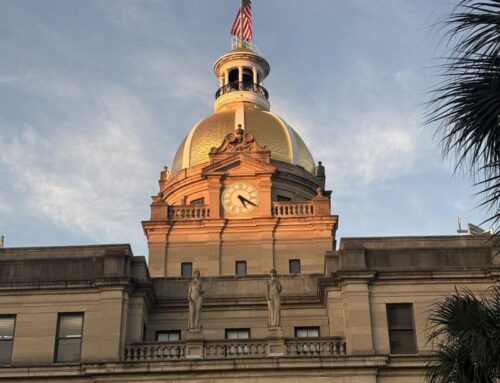South Lake Tahoe City Council reduces taxes on cannabis businesses by 3%
November 6, 2025
SOUTH LAKE TAHOE, Calif. – With only three members voting, the South Lake Tahoe City Council approved a resolution on Tuesday that reduced the cannabis tax rate from six percent to three percent while continuing to exempt the tax for medical cannabis. In the same motion, they approved a resolution to eliminate the public safety mitigation fee. Due to Cody Bass having to recuse himself since he owns a cannabis business, Scott Robbins acted as mayor during the agenda item.
When local voters approved Measure G in 2022, they supported replacing an existing community benefit fee with a formal cannabis and professions tax of up to six percent. The two amounts were estimated to be about equal at the time, and the tax was based on sales, instead of a fixed fee. Since then, the City has had a formal six percent tax on cannabis, which is a pass-through tax and paid for by customers.
In Tuesday’s council action, that tax was cut in half after cannabis business owners said it was too high and was forcing customers away.
Several local nonprofits that are beneficiaries of the current Cannabis Community Grant program spoke up during public comment. In 2021, the City Council pledged support for those nonprofits in the community who worked to mitigate the negative effects of cannabis in the community. Last year, the City took in $900,000 through the cannabis tax and divided up $450,000 among nonprofits that applied and went through the process. The other $450,000 went to a dedicated police officer, snow removal, and roads through the general fund.
Now the 50 percent cut will put that income at approximately $450,000, and the future of the community benefit program is unknown. When the original ordinance was passed by a previous city council, they wanted to make sure funds were used to mitigate the negative impacts of having cannabis sales legalized in South Lake Tahoe.
Boys and Girls Club of Lake Tahoe, Mountain High Recovery, Encompass Youth, Vista Rise, Tahoe Youth and Family Services were among those who spoke, asking the council to keep the tax where it was so their efforts could continue to be funded through the grant.
During public comment, resident Scott Loberg said reducing the tax was “ridiculous.”
“This is a free market economy, you’re picking winners and losers,” said Loberg, since other businesses were not seeing reduced taxes.
Councilman Keith Roberts was thinking along those same lines. “Are we going to take care of the other businesses in town, or just the four cannabis ones?” he asked. Being in the restaurant industry, Roberts said those businesses find a way to adjust when costs go up, and why can’t all? He was for supporting a vibrant community, not supporting individual businesses, though he later voted to reduce the cannabis tax.
“It’s not about dollars, it’s about saving lives,” said Cheyanne Lane, executive director of Tahoe Youth and Family Services, a 54-year-old local nonprofit.
There was no apparent urgency to pass the tax change, and some suggested there was time for the community to discuss the options on the table and discuss what is best for the community as a whole. Governor Newsom recently signed a bill to stop the cannabis tax increase that was to go into effect for the state’s portion of taxes.
Some public comment was steered toward the consumer going “off the hill into Nevada” to buy their cannabis instead of buying locally. Some residents go “off the hill” to purchase gasoline and groceries in Nevada, but no tax breaks were discussed for those businesses, just cannabis.
Roberts said the average cannabis purchase in a store is about $60, and a consumer would save about $3.60 buying in Carson City instead of South Lake Tahoe. He commented that travel would cost more than the possible savings.
Robbins used the example of El Dorado County Sheriff Deputy Brian Ishmael being killed by a man at an illegal marijuana farm in 2019 to show the dangers of the black market. The current high prices of cannabis in the state have forced some to buy from those not in legal stores. Ishmael was killed when cannabis was not being sold in El Dorado County outside of South Lake Tahoe. Even though Prop. 64 passed in 2016, El Dorado County did not have an ordinance until 2020.
After a long public comment period and long council discussion, the three voting council members voted to cut the 6% tax in half.
Search
RECENT PRESS RELEASES
Related Post




